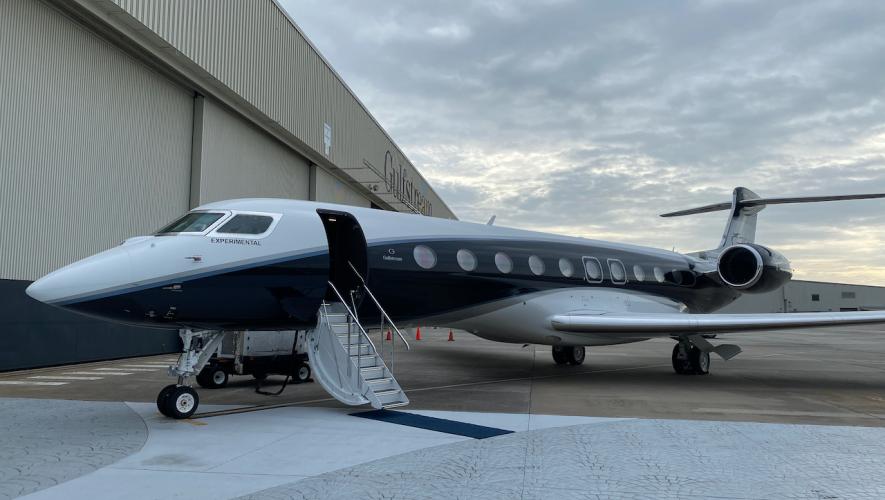Facing a crushing 2020 characterized by an extended grounding of the Boeing 737 Max and compounded by the Covid-19 pandemic that slowed airline travel—and new airplane demand—to a trickle, Spirit AeroSystems used the depressed commercial aircraft environment to improve its manufacturing processes and quality, president and CEO Tom Gentile said on the Airbus and Boeing supplier’s fourth quarter and year-end 2020 earnings call Tuesday. For the year, Spirit recorded an $870 million loss on revenue of $3.4 billion, which amounts to a 57 percent decline from 2019.
Last year Spirit delivered 71 Boeing 737 shipsets—traditionally accounting for more than 50 percent of its annual revenue—compared with 606 in 2019.
Gentile noted that in response to fewer deliveries of parts and structures to Boeing and Airbus, it reduced its commercial aviation workforce by 8,000 and closed “multiple” facilities—actions that brought more than $1 billion in annualized cost reductions. But at the same time, the slower business enabled Spirit to make improvements to its manufacturing processes that would have proved impossible during a period of full-rate production, he explained.
Those processes included consolidating 500,000 sq ft of warehouse space in Wichita to its newer 150,000 sq ft global digital logistics center, resulting in a more timely and accurate parts handling system, he said. The company also began work on a 10-station “hybrid automated” assembly line for 737 Max floor beams expected to go into operation by the end of the first quarter. “The Max 8 had 47 floor beams with more than 400 different configurations,” Gentile said. “This new assembly line will improve quality and our ability to manage all these configurations.”
Also on the Max, Spirit freed 125,000 sq ft of manufacturing space in the 737 fuselage factory by shipping some assembly work to other locations within the plant, such as moving Max forward fuselage fabrication to where it builds 767 forward fuselages and transferring Max wing box work to its Tulsa, Oklahoma facility. “These moves are enabling a simplified 737 fuselage production flow," Gentile said, adding that before parts would criss-cross one another and some would use the same path multiple times before reaching the end of the line. “The new production flow reduces the number of moves needed and drives a more efficient use of time and improves productivity and quality,” he explained.
Spirit’s improved processes include a new resin transfer molding technology for Airbus A320 spoiler production in its Prestwick, UK, facility, which at peak production will produce hundreds of spoilers a month at peak rate, Gentile said. It will begin moving toward production by the end of the first quarter, he added.
Finally, Spirit has accelerated its digitization processes, including the implementation of a manufacturing execution system (MES) on the 737 fuselage line that uses a digital tool to track data and production methods and simplifies a number of reporting activities performed by managers. A digital manufacturing operating system board gives managers visibility into the real-time production process while a digital workflow system streamlines parts movement across the Wichita factory. Another change initiated by the digitization process involves the transition from paper to digital instructions that provide graphics, pictures, and other details tied to three-dimensional digital models for Spirit’s mechanics and inspectors, Gentile said. “From implementing integrated tools for operations management to visualization of the fabrication and assembly process, our digitization projects underway are expected to reduce the time needed to build product and enhance quality for our customers,” he added.







